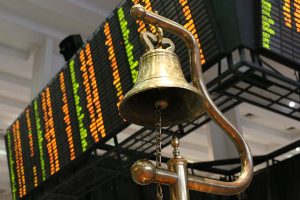UBS cuts half-a-dozen bankers in HK as deals slump due to China turmoil

UBS Group AG is cutting China-focused jobs amid a slump in dealmaking in the world’s second-largest economy. — MAN CHUNG/UNSPLASH
UBS GROUP AG is letting go of half-a-dozen mainland China-focused employees in Hong Kong (HK) as turmoil in the world’s second-largest economy hammers dealmaking, prompting global banks to rein in their presence in the once lucrative market.
The Swiss bank has trimmed bankers in businesses including debt capital markets, investment banking and real estate, the people said, asking not to be named discussing private information. A UBS spokesman declined to comment.
Investment banking revenue for UBS in China has plunged by about half, though gains in Japan and Australia helped prop up its overall Asia business, people familiar said. New issuance in debt and equity markets has slowed this year following sweeping policy changes in China and slowing economic growth, denting revenue at banks that had ambitious expansion plans for the country.
UBS in the past year has also been said to trim staff in equity capital markets in Europe, the Middle East and Africa and retreat from investment banking in India and South Africa to focus more on wealth management, Bloomberg has reported. Rival Credit Suisse Group AG, saddled by major losses, is preparing large cuts to its investment banking unit and is questioning its long-term plans for China amid slowing growth and geopolitical tension.
Among those let go at UBS were Alex Yang, executive director, and one other banker on its China investment bank team. Wenyang Gao, an executive director, and Victor Wong, a director, as well as an analyst in its China debt team were also cut, the people said. It also let go of a real estate banker. All the positions were based in Hong Kong.
Mr. Wong declined to comment, while Gao couldn’t be immediately reached. Mr. Yang didn’t respond to a message via LinkedIn and couldn’t be reached through his e-mail at UBS.
Global investment banking revenue at UBS tumbled 57% in the second quarter during what Chief Executive Officer Ralph Hamers said was one of the most difficult periods for investors in a decade.
In an interview with Bloomberg Television in July, Hamers said that Asia and China are must markets given the demographics. Toward the end of the third quarter and in the fourth quarter there will be a “spark of optimism” after there’s more political clarity in China, firmer economic policies and further lifting of coronavirus restrictions, he said.
In Asia, UBS has been focused on the sale of Chinese junk bonds to wealthy clients, a business that has almost evaporated as Chinese property developers remain largely shut out of the market amid a deepening property crisis.
The bank’s head of China, David Chin, stepped aside earlier this year to focus on his job as head of the Asia-Pacific investment bank, targeting to expand the Asia business and diversify revenue to compensate for a slowdown in Chinese dealmaking, people familiar said at the time.
Investment banks had been going full steam into China as Beijing opened the door to full ownership of their ventures in the country, counting on reaping billions in profits. UBS boosted its stake in its China securities venture to 67% in March after its mainland China revenue had more than doubled to almost $1 billion in 2021 from 2019.
Now they are facing rougher markets. Offshore bond sales by Chinese firms have slid 44% this year to $63.9 billion, according to data compiled by Bloomberg. Defaults by property firms including giants in the offshore market such as China Evergrande Group and Kaisa Group Holdings Ltd. have dented investor appetite.
UBS, meanwhile, has plunged in the league tables of dealmakers in China offshore bonds, falling 24 places to rank 42nd. The Swiss bank is ranked 45th for Asia high-yield bonds denominated in dollars, euro and yen, slumping 38 places so far this year, the data showed.
The job cuts at UBS also come as China steps up scrutiny of companies seeking to sell debt abroad as defaults worsen to record levels. Borrowers, including financial firms, will need to receive approval for issuance of debt with maturities longer than one year from the National Development and Reform Commission, according to an Aug. 26 draft for comments. The consultation period runs until Sept. 26. — Bloomberg




